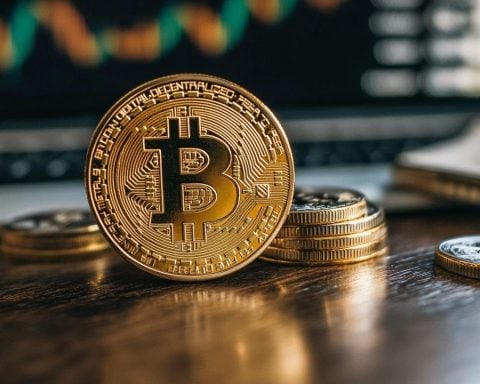In recent discussions concerning global currency influences, President-elect Donald Trump has issued stern warnings to BRICS nations about attempting to establish a reserve currency. However, a surprising development suggests that the focus might be misplaced.
Renowned economist Jeremy Siegel has pointed out a potent contender that could potentially reshape the economic landscape. According to Siegel, Bitcoin poses a significantly greater challenge to the dominance of the U.S. dollar in global reserves than any currency initiatives born out of emerging market economies.
Bitcoin, a decentralized digital currency, has been gaining momentum in financial markets across the globe. Its growing acceptance and adoption are starting to shift how investors and governments view traditional reserve currencies. Siegel emphasizes that this cryptocurrency’s structure and appeal make it a formidable alternative to the dollar, particularly as it operates outside the control of any single nation.
The interest in Bitcoin’s potential stems from its blockchain technology, which ensures secure and transparent transactions. As confidence in this system builds, there is a possibility that global reserves might increasingly turn to Bitcoin as a stable store of value.
The implications of such a shift could be vast, influencing international trade, investment, and monetary policies. As the world watches these developments unfold, the role of Bitcoin in the future of global economic security remains a subject of intense speculation and interest.
Can Bitcoin Dethrone the Dollar? Investor Insights and Predictions for 2025
As Bitcoin continues to rise in prominence, investors are eager to know its potential impact on the global economy, particularly concerning its role as a potential challenger to the U.S. dollar’s dominance. While some view Bitcoin as a speculative asset, others consider it a robust contender in global reserve currencies. Understanding the investment landscape, cryptocurrency rate predictions for 2025, and the inherent risks and benefits of investing in Bitcoin is crucial for making informed decisions.
Investor Insights and 2025 Predictions
Bitcoin’s disruptive potential is drawing significant attention from economists and investors alike. By 2025, some analysts predict Bitcoin could achieve greater stability, potentially leading to wider adoption as both a global currency and a store of value. This has sparked interest among institutional investors who are exploring Bitcoin as a hedge against inflation and currency devaluation.
Predictions about Bitcoin’s rate in 2025 vary broadly due to its volatility, but optimistic forecasts suggest substantial appreciation if current adoption trends continue. Analysts emphasize the importance of monitoring technological advancements, regulatory shifts, and market acceptance, as these will significantly impact Bitcoin’s trajectory.
Investment Risks and Rewards
Investing in Bitcoin involves both substantial risks and rewards. On the positive side, Bitcoin offers high potential returns, diversification benefits, and a hedge against traditional currency instability. Its decentralized nature also appeals to those seeking to invest outside the typical constraints of financial systems dominated by governments and banks.
Conversely, the volatility inherent in Bitcoin’s market can lead to significant financial swings. Regulatory uncertainties and security risks, such as theft and fraud, pose challenges. Investors need to be cautious and consider their risk tolerance before allocating funds towards Bitcoin or other cryptocurrencies.
Pros and Cons of Bitcoin Investment
Pros:
1. High Potential Returns: If Bitcoin’s adoption continues to grow, early investors could experience substantial returns.
2. Diversification: Bitcoin provides exposure to a burgeoning asset class independent of traditional stock and bond markets.
3. Inflation Hedge: Bitcoin’s capped supply makes it an attractive hedge against inflation and currency devaluation.
Cons:
1. Volatility: Price fluctuations can be drastic, posing risks to investors’ portfolios.
2. Regulation Uncertainty: Unpredictable regulatory changes could impact Bitcoin’s legality and value.
3. Security Concerns: Despite blockchain’s security features, the risk of cyber theft and loss remains significant.
Controversies and Considerations
Bitcoin’s potential to become a global reserve currency is not without controversy. While some champion its decentralized and transparent nature, others criticize its use in illicit transactions and environmental impact due to energy-intensive mining activities.
Investors must also weigh the ethical considerations, particularly the ecological footprint of Bitcoin mining. As innovations in technology aim to create more sustainable solutions, keeping abreast of these developments is key.
Ultimately, Bitcoin’s future remains an intriguing subject of debate. Investors are advised to conduct thorough research and remain updated on market trends, technological advancements, and regulatory changes. As always, diversification and prudent risk management are integral to any investment strategy, especially in a field as dynamic as cryptocurrency.
For further insights on cryptocurrency markets, you can visit Coinbase or Binance.
















